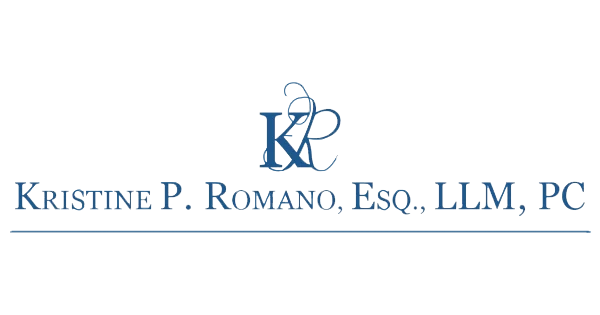Myths We Tell Ourselves about Estate Planning
Estate planning is one of those topics people often push to the side. It’s understandable—no one wants to think about getting older, becoming seriously ill, or passing away. But avoiding the conversation can lead to confusion, unnecessary legal expenses, and stress for your loved ones.
At Kristine Romano Law, we regularly meet with clients in Northborough and Natick who are surprised to learn how many estate planning myths they’ve believed for years. These misunderstandings can prevent people from taking the steps needed to protect themselves, their families, and their assets.
Let’s take a closer look at some of the most common estate planning myths—and what the truth really is.
Myth #1: Estate Planning Is Only for the Wealthy
This is perhaps the biggest and most damaging myth out there. Many people think estate planning is about avoiding the federal estate tax, which only applies to estates worth over $12.92 million (as of 2023). But estate planning is so much more than taxes.
Your estate plan ensures that your wishes are honored if you become seriously ill or pass away. It can:
- Appoint someone to manage your finances or medical decisions if you're incapacitated
- Outline who receives your property or assets
- Name a guardian for your children
- Provide instructions for end-of-life care
If you have a bank account, a car, a home, or children—you have an estate worth planning for.
Myth #2: Only Seniors Need an Estate Plan
Age doesn’t determine when you need to start estate planning—life does. Young parents in Natick should have a plan in place to protect their children, especially when both parents are named on a will. Without a named guardian, a court could decide who raises your children in the event of a tragedy.
Even single adults need to consider what would happen if they became incapacitated. Who would pay the bills? Make medical decisions? Estate planning documents can answer those questions in advance, giving you control over your future no matter your age.
Myth #3: You Only Need a Will for Estate Planning
Your Natick estate plan begins with a Last Will and Testament. However, a comprehensive estate plan addresses more than the distribution of assets. Trusts are used to ensure that assets are transferred to the right beneficiaries in a timelier manner than they would be if passed through your will. Your estate plan should include a Power of Attorney, Health Care Directive and a Living Will.
Myth #4: I Can Just Use Online Forms
While online templates might seem like a quick and inexpensive option, estate planning isn’t a one-size-fits-all situation. Many clients come to us in Natick after a DIY plan caused confusion or didn’t follow Massachusetts law.
Every state has different rules about how documents must be written, signed, and witnessed. Even a small mistake can make your plan legally invalid. Working with an experienced estate planning attorney ensures your documents are done right—and reflect your unique situation and wishes.
Myth #5: A Will Avoids Probate
This is one of the most misunderstood aspects of estate planning. A Will provides important instructions, but it still must go through probate—the court-supervised process of distributing a person’s estate. Probate can be costly, time-consuming, and public. If you own property in multiple states, each property might go through probate separately.
There are ways to minimize or avoid probate, such as using Trusts, beneficiary designations, or joint ownership. But a Will alone doesn’t keep your estate out of court.
Myth #6: Estate Planning Only Matters After Death
Estate planning is just as much about protecting your life as it is your legacy. In the event of an illness or accident, you may need someone to step in and make financial or health care decisions for you.
That’s why a complete estate plan includes more than a will. It should also include:
- Health Care Proxy: Names someone to make medical decisions for you if you can’t speak for yourself
- Durable Power of Attorney: Gives someone the legal authority to handle your finances
- Living Will: Outlines your preferences for end-of-life care
These estate planning documents give you peace of mind and make a difficult time easier for your family.
Myth #7: Once It’s Done, You’re All Set
Creating your estate plan is a huge step—but it’s not the final one. Life changes. So should your estate plan.
You should review your documents when you:
- Get married or divorced
- Have children or grandchildren
- Move to another state
- Buy or sell property
- Experience a significant change in assets
Even if none of these events happen, we recommend reviewing your plan every few years to ensure it still reflects your current wishes and the latest Massachusetts laws.
Speak with a Natick Estate Planning Lawyer to Create an Estate Plan Tailored for You
The type of estate planning documents you choose to create depends on your financial situation, family structure and long-term goals. If you’re unsure about what an estate plan should include for you and your family, consult an estate planning attorney at Kristine Romano Law to explore your options. Our law firm helps clients navigate Trust creation, asset protection and estate planning strategies to ensure that their wishes are honored and their wealth is preserved. Contact us to schedule a consultation today to determine the best plan for your future.
Key Takeaways
- Estate planning is for everyone, not just the wealthy or elderly.
- Young families in Natick need to plan for guardianship, not just asset distribution.
- Wills do not avoid probate; trusts and beneficiary designations can help with that.
- Online forms can lead to legal trouble; professional guidance ensures accuracy and clarity.
- Trusts are practical tools for privacy, asset protection, and incapacity planning.
- A complete plan includes documents for incapacity, not just death.
- Review your estate plan regularly to keep it aligned with life changes and legal updates.
Reference: Utah Business (June 12, 2024) “5 common myths about estate planning, debunked”










